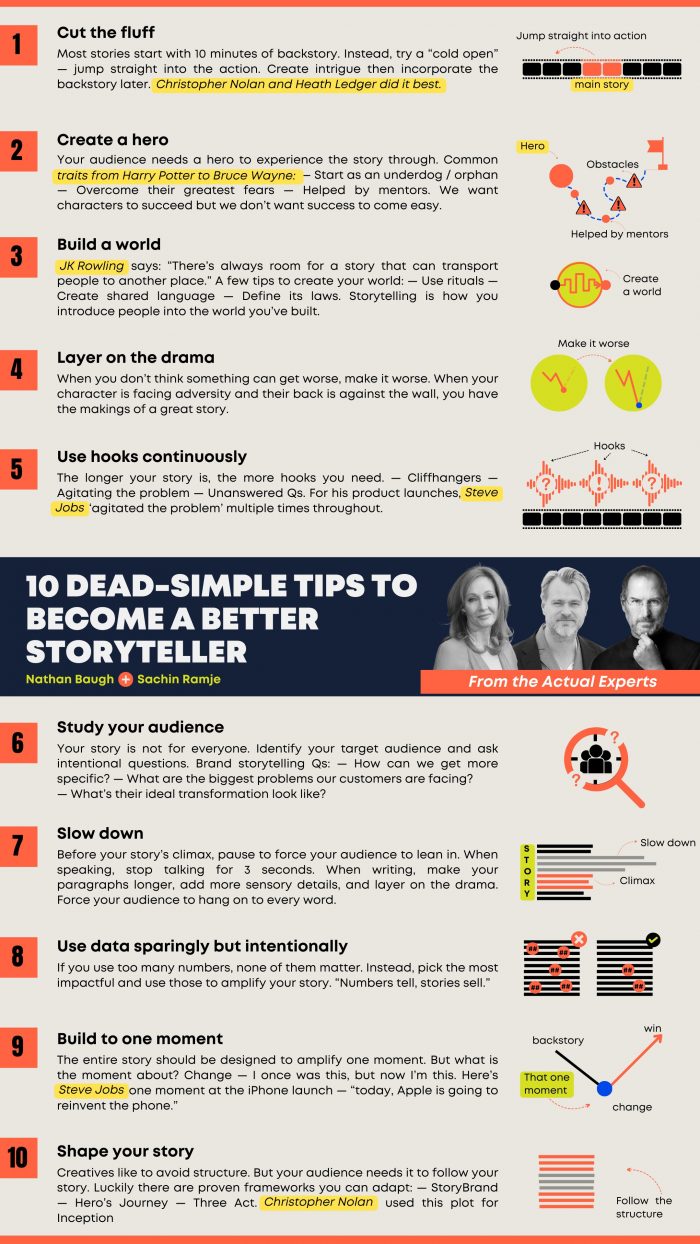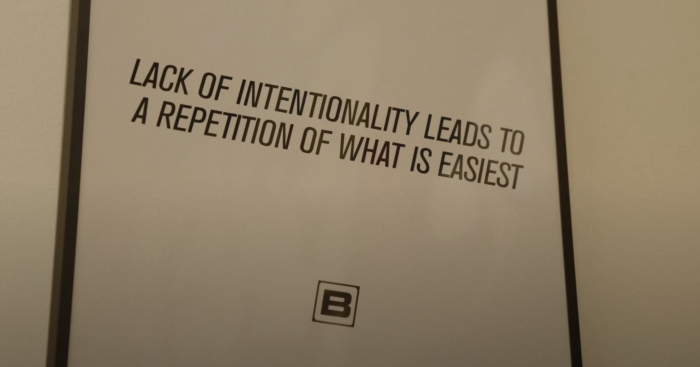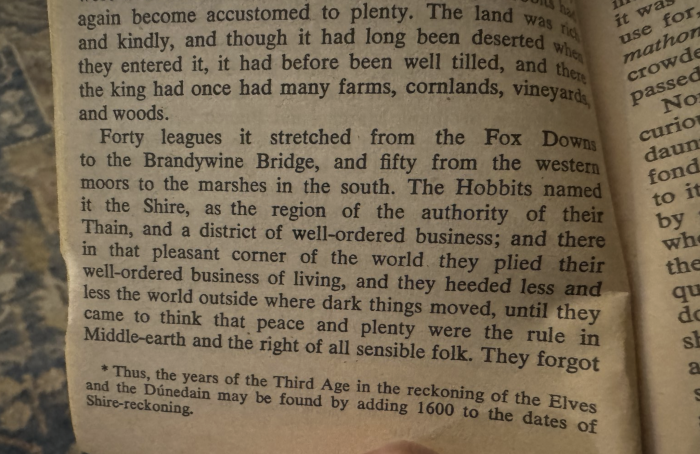These from Nathan Baugh via Sachin Ramje are excellent. One I would add that I heard recently attributed to Aaron Sorkin: Intention and obstacle. Intention and obstacle. Intention and obstacle.

These from Nathan Baugh via Sachin Ramje are excellent. One I would add that I heard recently attributed to Aaron Sorkin: Intention and obstacle. Intention and obstacle. Intention and obstacle.

I thought this was great.
I was pleased to finally discover a definition that made sense to me, by Hugo Amsellem, in his excellent summary of the broader Creator Economy: “In a previous article, I argued that a creator isn’t someone who creates but an individual who scales without permission. They are to the individual what startups are to the organization.” In other words, people who in eras past would have needed to go through a gatekeeper first.
The Flywheel
Stumbled across this recently, and I thought it was good.
1. Think hard about whether you’ll be a happier person if you’re working for someone or for yourself. I don’t think the answer is as obvious as people think, and each of those is very right for some people and very wrong for others. It’s a fundamentally different type of career, so maybe try experiencing a little bit of both to help you decide.
2. Try to ignore conventional wisdom if you can. It tends to be unnecessarily fear-based and terribly outdated. Instead, read the books of people you admire and hear what they say about careers.
3. You might think you can be happy without work/life balance, but it’s a trap. You can’t. And you don’t need to. You can be a prolific creator/producer working 40 hours a week, if you actually put in 40 real hours of work each week.
Forbes
I was watching a recent BPN video on YouTube, and it was completely unrelated to this quote that was on the wall, but I absolutely loved this quote that was on the wall.

This is extremely thought-provoking, possibly even provocative.
I’ve been on a Jason Fried kick recently, and his podcast with Lenny was great. Jason amuses me because he seems almost confused by why any company would pursue anything besides profit. Which makes sense when he says it, but then you get outside of it, and it makes sense why companies chase growth and revenue. So going back to Jason often is a good idea.
Most people end up in this plateau area because they get some initial growth, the word gets out whatever, and they end up with like 6,000 somethings. And then you’re kind of like stuck there. And then it’s like, well, do you want to keep doing this? Were you just high on the growth or do you actually like the thing?
Jason Fried
This is from the Fellowship of the Ring, and I found it to be quite lovely.
A district of well-ordered business; and there in that pleasant corner of the world they played their well-ordered business of living, and they heeded less and less the world outside where dark things moved …

This is a good thumbnail and title, which is why it has 7M views.

But it’s not original content. It’s just reframing and repurposing one of the more commonplace things that happens every week in the NBA — Steph Curry hitting threes.
Contextualization matters, though, and as the amount of information increases, so too does the importance of gatekeeping and contextualization. You can’t wade through all the golf stuff that happens in a week, but I can, and then I can deliver it to you in a way that is both funny and meaningful. There is value in that, even if from my side there is technically no “new content” being created.
There are two ways to make content work.
I’m not good at the first, but I think I’m sometimes excellent at the second. If you can do both, you can crush.
Saw this in the James Clear newsletter today. Incredible
“If you know something’s going to work, it’s not worth working on. It requires no courage. It requires no faith. It requires no skin in the game. Whether you’re a spy or a teacher or a spouse or a painter or an abuela or an astronaut or a monk or a barista or a board-game designer, the bits that matter are the bits you make matter by putting yourself on the line for them. The unknown is the foundry where you forge your chips. Everything important is uncertain. Sitting with the discomfort of that uncertainty is the hard part, the wedge that can move the world.”
Foundry
Everything important is uncertain. Gonna be thinking about that one.
This entire blog post that I stumbled into is wonderful, but this part in particular is amazing.
Two of my favorite people and dearest friends in all the world are two of the people who are best at bearing their full attention on the moment they are inhabiting, or the thought that is currently swirling. Kevin Kelly and Stewart Brand have retained a childlike wonder about the world partly because they regularly exercise their attention muscles. To be in their presence makes you feel present.
Kevin and Stewart have been friends for decades. Over forty years? An entire lifetime of knowing and respecting each other. During the pandemic, I was spending time with one of them and then the other, and something hit me: I have friends today that I will grow old with the same way that Kevin and Stewart grew old together. And it’ll happen with or without my attention. For most old friends, it happens without. You are young people who love each other, and then one day you are old friends who love each other. What you very rarely do — myself anyway — is imagine being old with your friends the same way you imagine being old with your spouse. But it still happens.
Hugh Howey